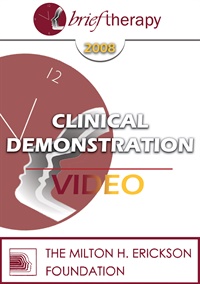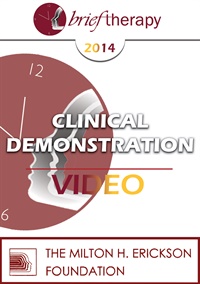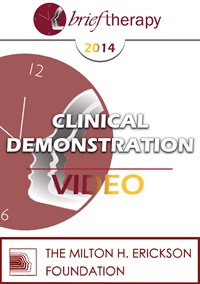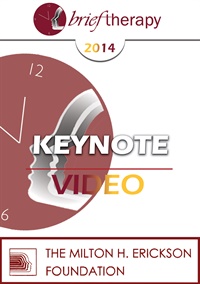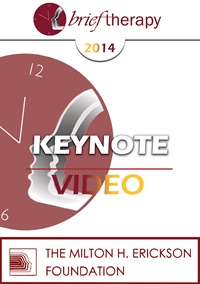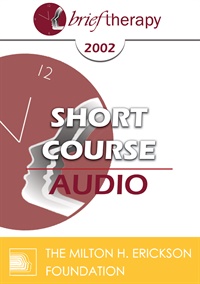
- Average Rating:
- Not yet rated
- Topic Areas:
- Short Courses | Grief | Trauma | Aging and Mortality
- Categories:
- Brief Therapy Conference | Brief Therapy Conference 2002
- Faculty:
- Naji Abi-Hashem, PhD
- Duration:
- 1:19:24
- Format:
- Audio Only
- Original Program Date:
- Dec 12, 2002
- Short Description:
- This short course offers a clear, compassionate framework for working with grief, trauma and the many losses that shape people’s lives. The presenter distinguishes normal and complicated grief, explores how trauma reactions overlap with mourning, and shows how culture, attachment and past experiences shape the healing process. Participants learn practical steps for assessment, emotional expression, meaning making and reintegration, helping clients move toward resolution with greater stability and resilience.
- Price:
- $15.00 - Base Price
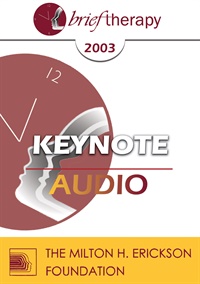
- Average Rating:
- Not yet rated
- Topic Areas:
- Keynotes | Psychotherapy | Trauma | Memory | Post-Traumatic Stress Disorder (PTSD) | Storytelling | Constructive Narrative
- Categories:
- Brief Therapy Conference | Brief Therapy Conference 2003
- Faculty:
- Donald Meichenbaum, PhD
- Duration:
- 54:14
- Format:
- Audio Only
- Original Program Date:
- Dec 11, 2003
- Short Description:
- The assessment and treatment implications of patient victimization will be critically examined from a constructive narrative perspective. A phase-oriented cognitivebehavioral treatment model will be presented for adults with PTSD, Complex PTSD, and related co-morbid disorders. A critical analysis will be offered of various forms of so-called "memory work" interventions.
- Price:
- $15.00 - Base Price
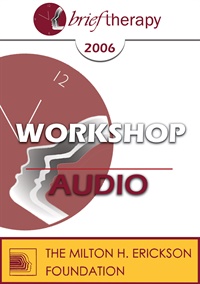
- Average Rating:
- Not yet rated
- Topic Areas:
- Workshops | Children and Adolescent Therapy | Family Therapy | Trauma | Brief Therapy
- Categories:
- Brief Therapy Conference | Brief Therapy Conference 2006
- Faculty:
- Kenneth Hardy, PhD
- Duration:
- 2:04:30
- Format:
- Audio Only
- Original Program Date:
- Dec 10, 2006
- Short Description:
- Ignoring the impact of trauma on the client's family overlooks powerful dynamics that are crucial to treatment outcome. Participants in this workshop will learn how to involve the trauma sufferer's partner and other family members as resources in the healing process. Participants will learn how to better educate clients about the typical symptoms of trauma, the stages of trauma recovery, how to help family members both soothe and set limits with the traumatized person, and the typical pitfalls families encounter - including the depleting response of "enough already" as a family member tries to heal from a trauma.
- Price:
- $15.00 - Base Price
- Average Rating:
- Not yet rated
- Topic Areas:
- Clinical Demonstrations | Trauma | Brief Therapy | Resources
- Categories:
- Brief Therapy Conference | Brief Therapy Conference 2008
- Faculty:
- Steve Andreas, MA, NLP
- Course Levels:
- Master Degree or Higher in Health-Related Field
- Duration:
- 48:14
- Format:
- Audio and Video
- Original Program Date:
- Dec 13, 2008
- Short Description:
- This live clinical demonstration shows a gentle way of working with trauma that avoids retelling the event itself. By helping the client build a vivid, empowering resource experience and carry it forward through time, the session illustrates how fear can soften into steadiness and choice. The work includes future testing and safety checks, showing how change can feel grounded, flexible, and durable.
- Price:
-
Sale is $29.00
price reduced from Base Price - $59.00
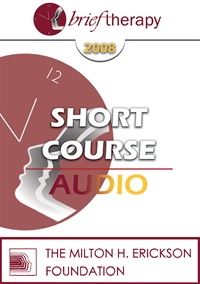
- Average Rating:
- Not yet rated
- Topic Areas:
- Short Courses | Addiction | Hypnosis | Trance | Trauma | Brief Therapy | Dissociation
- Categories:
- Brief Therapy Conference | Brief Therapy Conference 2008
- Faculty:
- Albina Tamalonis, PsyD
- Duration:
- 1:31:45
- Format:
- Audio Only
- Original Program Date:
- Dec 11, 2008
- Short Description:
- People who are traumatized, and/or have one of the multitudes of addictive disorders are, in great part, dissociated from their physical reality. There is research which indicates that people who exercise are more likely to suffer from less anxiety, pain and depression. This short course offers a practical approach to overcoming people's reluctance to exercise by using active-alert hypnosis and music. By listening to hypnosis with music while exercising, people can alter their perceptions of pain, time, effort and pleasure. The words of the hypnosis are taken from the works of Milton H. Erickson, Jeffrey Zeig, Michael Yapko and Eva Banyai. Their different contributions will be delineated and explained.
- Price:
- $15.00 - Base Price
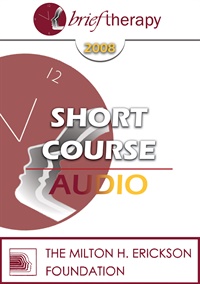
- Average Rating:
- Not yet rated
- Topic Areas:
- Short Courses | Pain and Healing | Brief Therapy | Trauma
- Categories:
- Brief Therapy Conference | Brief Therapy Conference 2008
- Faculty:
- Maggie Phillips, PhD
- Duration:
- 1:25:08
- Format:
- Audio Only
- Original Program Date:
- Dec 11, 2008
- Short Description:
- This short course presents brief interventions designed to address and remove common barriers to successful treatment of pain conditions. Topics include: ways to reverse and regulate the emotional and physical impact of traumatic experiences; the necessity of medicine for the mind as well as the body; how to utilize the polyvagal nervous system in planning treatment strategy; how to help pain patients create healing connections with self, other and the divine; and how to teach people in pain to build on success. This session will include live demonstration and experiential practicum. Case consultation is welcome.
- Price:
- $15.00 - Base Price
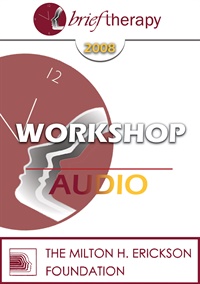
- Average Rating:
- Not yet rated
- Topic Areas:
- Workshops | Trauma | Brief Therapy | Children and Adolescent Therapy
- Categories:
- Brief Therapy Conference | Brief Therapy Conference 2008
- Faculty:
- Lenore Terr, MD
- Duration:
- 2:45:21
- Format:
- Audio Only
- Original Program Date:
- Dec 11, 2008
- Short Description:
- Whether brief or long-term, the treatment of childhood trauma should include an opportunity for the youngster to abreact (express strong emotion), correct (find individual, community or even fantasized solutions), and to discover contexts (perspectives and understandings of the events that occurred). Dr. Terr will thoroughly discuss and exemplify these three modes of treatment, selecting brief therapies as the clinical examples.
- Price:
- $15.00 - Base Price
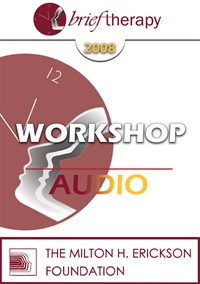
- Average Rating:
- Not yet rated
- Topic Areas:
- Workshops | Trauma | Brief Therapy | Mind-Body | Pain and Healing
- Categories:
- Brief Therapy Conference | Brief Therapy Conference 2008
- Faculty:
- Peter Levine, PhD
- Duration:
- 1:57:13
- Format:
- Audio Only
- Original Program Date:
- Dec 14, 2008
- Short Description:
- It is common to see clients who present with complex arrays of symptoms. These symptoms can be persistent or "mutate" unexpectedly, leaving patient and therapist feeling confused, frustrated and helpless. In this presentation, we will see how states of unresolved stress and trauma can be the underlying force that drives multiple elusive symptoms. These include panic, depression, insomnia, migraines, severe PMS, chronic pain, fibromyalgia and chronic fatigue.
- Price:
- $15.00 - Base Price

- Average Rating:
- Not yet rated
- Topic Areas:
- Workshops | Children and Adolescent Therapy | Trauma | Brief Therapy
- Categories:
- Brief Therapy Conference | Brief Therapy Conference 2008
- Faculty:
- Peter Levine, PhD
- Duration:
- 1:43:27
- Format:
- Audio Only
- Original Program Date:
- Dec 14, 2008
- Short Description:
- This workshop will explore trauma along a child's developmental continuum. We will investigate how the effects of trauma can result not only from catastrophic events, but from commonplace events. At the core of this understanding is the unique way that trauma is imprinted on the body, brain and spirit. This workshop will demonstrate how trauma can be both prevented and resolved through play, art and sensory-motor activities. Participants will learn through combination of lectures, videos, case presentations and experiential activities.
- Price:
- $15.00 - Base Price
Tags: Brief Therapy Children Trauma
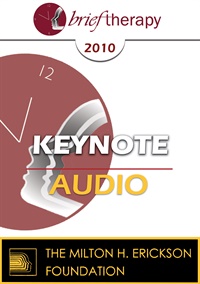
- Average Rating:
- Not yet rated
- Topic Areas:
- Attachment | Trauma | Keynotes | Brief Therapy
- Categories:
- Brief Therapy Conference | Brief Therapy Conference 2010
- Faculty:
- Bessel van der Kolk, MD
- Duration:
- 58:25
- Format:
- Audio Only
- Original Program Date:
- Dec 10, 2010
- Short Description:
- The study of psychological trauma has been accompanied by an explosion of knowledge about how experience shapes the central nervous system and the formation of the self. The study of trauma has probably been the single most fertile area in developing a deeper understanding of the relationship among the emotional, cognitive, social, and biological forces that shape human development.
- Price:
- $15.00 - Base Price
Tags: Trauma Attachment Brief Therapy
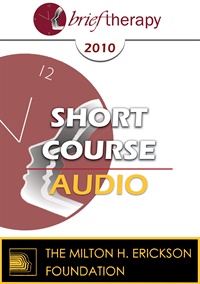
- Average Rating:
- Not yet rated
- Topic Areas:
- Short Courses | Anxiety | Depression | Therapist Development | Trauma | Brief Therapy
- Categories:
- Brief Therapy Conference | Brief Therapy Conference 2010
- Faculty:
- Virgil Hayes, DO
- Duration:
- 1:25:54
- Format:
- Audio Only
- Original Program Date:
- Dec 09, 2010
- Short Description:
- This workshop is a pragmatic look at how to gently, but quickly, understand how anxiety, depression and psychological trauma are created. Understanding the creation leads to co-creation to avenues of intervention. The emphasis is on non-medical, nonpathological understanding of problem creation. Case studies demonstrate the process from problem identification, conceptualizing leading to intervention and problem solving.
- Price:
- $15.00 - Base Price
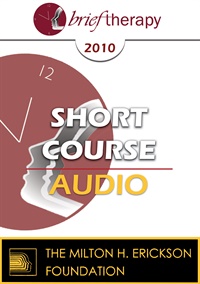
- Average Rating:
- Not yet rated
- Topic Areas:
- Family Therapy | Short Courses | Family Constellations | Brief Therapy | Trauma
- Categories:
- Brief Therapy Conference | Brief Therapy Conference 2010
- Faculty:
- Dan Booth Cohen, PhD
- Duration:
- 1:23:52
- Format:
- Audio Only
- Original Program Date:
- Dec 09, 2010
- Short Description:
- This workshop includes Systemic Family Constellation therapy. Redefined by Bert Hellinger and others, it has gained acceptance in Europe as a groundbreaking advancement in brief form therapy. The process explores how transgenerational traumas remain active. In a single session, the imaginal family system is transformed. The burden of memory becomes an enduring source of strength and healing.
- Price:
- $15.00 - Base Price
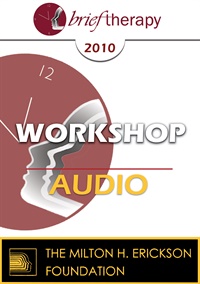
- Average Rating:
- Not yet rated
- Topic Areas:
- Trauma | Children and Adolescent Therapy | Family Therapy | Workshops
- Categories:
- Brief Therapy Conference | Brief Therapy Conference 2010
- Faculty:
- Kenneth Hardy, PhD
- Duration:
- 1:38:18
- Format:
- Audio Only
- Original Program Date:
- Dec 09, 2010
- Short Description:
- BT10 Workshop 03 - Children, Families, and Trauma: A Relational Approach - Kenneth Hardy, PhD Ignoring the impact of the trauma on the client’s family overlooks powerful dynamics that are crucial to treatment outcome. Participants in this workshop will learn how to involve the trauma sufferer’s partner and other family members as resources in the healing process.
- Price:
- $15.00 - Base Price
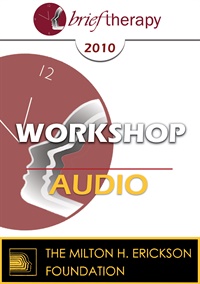
- Average Rating:
- Not yet rated
- Topic Areas:
- Trauma | Workshops
- Categories:
- Brief Therapy Conference | Brief Therapy Conference 2010
- Faculty:
- Bessel van der Kolk, MD
- Duration:
- 2:05:52
- Format:
- Audio Only
- Original Program Date:
- Dec 10, 2010
- Short Description:
- BT10 Workshop 23 - Frontiers of Trauma Treatment - Bessel van der Kolk, MD The study of psychological trauma has been accompanied by an explosion of knowledge about how experience shapes the central nervous system and the formation of the self. We have learned that most experience is automatically processed on a subcortical level, i.e. by “unconscious” interpretations that take place outside of awareness. Insight and understanding have only a limited influence on the operation of these subcortical processes. When addressing the problems of traumatized people who, in a myriad of ways, continue to react to current experience as a replay of the past, there is a need for therapeutic methods that do not depend exclusively on understanding and cognition.
- Price:
- $15.00 - Base Price
Tags: Trauma
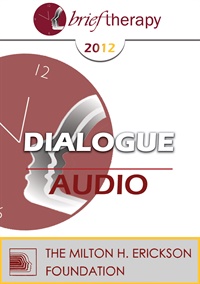
- Average Rating:
- Not yet rated
- Topic Areas:
- Trauma | Dialogues
- Categories:
- Brief Therapy Conference | Brief Therapy Conference 2012
- Faculty:
- Peter Levine, PhD | Ronald Siegel, PsyD
- Duration:
- 1:00:20
- Format:
- Audio Only
- Original Program Date:
- Dec 07, 2012
- Short Description:
- BT12 Dialogue 01 - Trauma - Peter Levine, PhD, Ronald Siegel, PsyD Educational Objectives: Given a topic, describe the differing approaches to psychotherapy, and identify the strengths and weaknesses of each approach.
- Price:
- $15.00 - Base Price
Tags: Trauma
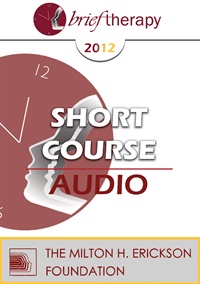
- Average Rating:
- Not yet rated
- Topic Areas:
- Family Therapy | Trauma | Short Courses | Family Constellations
- Categories:
- Brief Therapy Conference | Brief Therapy Conference 2012
- Faculty:
- Dan Booth Cohen, PhD
- Duration:
- 1:21:58
- Format:
- Audio Only
- Original Program Date:
- Dec 05, 2012
- Short Description:
- BT12 Short Course 16 – Systemic Family Constellations: A Broken Heart Can Heal…Sometimes in One Beat – Dan Booth Cohen, PhD, MBA This process identifies and releases transgenerational trauma. This simple process consistently uncovers connections between present day issues and transgenerational traumas. Within a single session, the burden of memory is transformed into an enduring source of strength and healing.
- Price:
- $15.00 - Base Price
Tags: Trauma
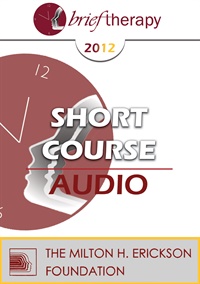
- Average Rating:
- Not yet rated
- Topic Areas:
- Trance | Trauma | Short Courses | Mindfulness | Brief Therapy | Ericksonian Hypnosis and Therapy Techniques
- Categories:
- Brief Therapy Conference | Brief Therapy Conference 2012
- Faculty:
- Ronald Alexander, PhD
- Duration:
- 1:29:32
- Format:
- Audio Only
- Original Program Date:
- Dec 09, 2012
- Short Description:
- This short course gives clinicians a hands-on look at using mindfulness and hypnotic awareness to settle agitation and restore clarity. Through live exercises and rapid grounding methods, participants see how breath, sensory focus and gentle redirection can interrupt overstimulation and help clients find steadier internal footing. The session centers on practical skills that translate easily to brief sessions or crisis moments.
- Price:
- $15.00 - Base Price

- Average Rating:
- Not yet rated
- Topic Areas:
- Children and Adolescent Therapy | StoryPlay | Trauma | Short Courses | Storytelling | Indirection | Experiential Therapy
- Categories:
- Brief Therapy Conference | Brief Therapy Conference 2012
- Faculty:
- Joyce Mills, PhD, LMFT
- Duration:
- 1:42:26
- Format:
- Audio Only
- Original Program Date:
- Dec 09, 2012
- Short Description:
- This experiential workshop will present an essential element of StoryPlay®, an Ericksonian, resiliency-based, indirective process of Play Therapy that focuses upon how to identify, access and utilize inner resources, skills, and gifts as invaluable “gems” to move us beyond diagnosis and effect transformational change for children and adolescents who have experienced trauma and adversity.
- Price:
- $15.00 - Base Price
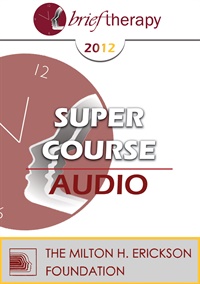
- Average Rating:
- Not yet rated
- Topic Areas:
- Trauma | Super Courses | Pain and Healing
- Categories:
- Brief Therapy Conference | Brief Therapy Conference 2012
- Faculty:
- Peter Levine, PhD | Maggie Phillips, PhD
- Duration:
- 3:56:47
- Format:
- Audio Only
- Original Program Date:
- Dec 09, 2012
- Short Description:
- BT12 Super Course 04 – Finding Freedom from Pain: Solving the Complex Puzzle of Trauma and Pain – Peter Levine, PhD, & Maggie Phillips, PhD The incidence of persistent and chronic pain conditions have become a public health crisis with more people suffering from chronic pain than from diabetes, cancer, and heart disease combined. The cost of suffering (human and financial) is huge and in part results from the fact that pain is so complex—ranging far beyond the intersection of neural transmission and sensory experience. The puzzle of pain involves a complicated labyrinth of emotions, sensations, culture, individual experience, genetics, spiritual meaning, as well as habitual physiological reactions. This workshop presents both the art and science of working with the resources of the body to reverse the effects of physical, emotional, and trauma related pain.
- Price:
- $15.00 - Base Price
Tags: Pain & Healing
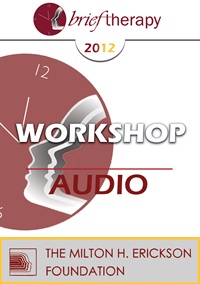
- Average Rating:
- Not yet rated
- Topic Areas:
- Trauma | Workshops | Multicultural
- Categories:
- Brief Therapy Conference | Brief Therapy Conference 2012
- Faculty:
- Kenneth Hardy, PhD
- Duration:
- 2:59:14
- Format:
- Audio Only
- Original Program Date:
- Dec 08, 2012
- Short Description:
- BT12 Workshop 23 – Understanding & Treating the Invisible Wounds of Socio-Cultural Trauma – Kenneth Hardy, PhD This workshop will provide a Socio-cultural view of trauma, highlighting the dynamics of the intersection of oppression and trauma. Strategies for effectively engaging and treating individuals and families with ‘oppression trauma’ will be discussed. Relevant Self of the Therapist issues will be explored.
- Price:
- $15.00 - Base Price
Tags: Multi-Cultural Trauma
- Average Rating:
- Not yet rated
- Topic Areas:
- Clinical Demonstrations | Anxiety | Depression | Trauma | Neuroscience | Brief Therapy
- Categories:
- Brief Therapy Conference | Brief Therapy Conference 2014
- Faculty:
- Ernest Rossi, PhD
- Course Levels:
- Master Degree or Higher in Health-Related Field
- Duration:
- 58:34
- Format:
- Audio and Video
- Original Program Date:
- Dec 13, 2014
- Short Description:
- Group and individual demonstrations of psychosocial genomics as the art and science of counseling and psychotherapy that utilizes our natural 4-stage creative cycle for facilitating gene expression and brain plasticity to optimize the resolution of anxiety, depression, trauma and problem solving in everyday life.
- Price:
-
Sale is $29.00
price reduced from Base Price - $59.00
- Average Rating:
- Not yet rated
- Topic Areas:
- Clinical Demonstrations | Memory | Trauma | Brief Therapy
- Categories:
- Brief Therapy Conference | Brief Therapy Conference 2014
- Faculty:
- Bessel van der Kolk, MD
- Course Levels:
- Master Degree or Higher in Health-Related Field
- Duration:
- 1:01:37
- Format:
- Audio and Video
- Original Program Date:
- Dec 13, 2014
- Short Description:
- Stories have the ability to engage people emotionally and to move them to change, but telling the right story at the right time to the right person is an art and a skill. This demonstration will show a gentle, artful and respectful way of doing brief therapy that uses stories to invite change.
- Price:
-
Sale is $29.00
price reduced from Base Price - $59.00
Tags: Brief Therapy Memory Trauma
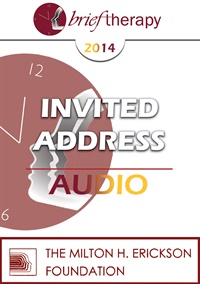
- Average Rating:
- Not yet rated
- Topic Areas:
- Post-Traumatic Stress Disorder (PTSD) | Meditation, Spirituality and Yoga | Invited Addresses | Trauma | Mind-Body
- Categories:
- Brief Therapy Conference | Brief Therapy Conference 2014
- Faculty:
- Bessel van der Kolk, MD
- Duration:
- 1:00:58
- Format:
- Audio Only
- Original Program Date:
- Dec 14, 2014
- Short Description:
- Chronic trauma interferes with self-perception and self-regulation. We will discuss effective approaches.
- Price:
- $15.00 - Base Price
- Average Rating:
- Not yet rated
- Topic Areas:
- Keynotes | Trauma | Post-Traumatic Stress Disorder (PTSD) | Brief Therapy
- Categories:
- Brief Therapy Conference | Brief Therapy Conference 2014
- Faculty:
- Donald Meichenbaum, PhD
- Course Levels:
- Master Degree or Higher in Health-Related Field
- Duration:
- 58:02
- Format:
- Audio and Video
- Original Program Date:
- Dec 12, 2014
- Short Description:
- Following the exposure to traumatic and victimizing experiences, 75 % of individuals will be impacted, but they go onto evidence resilience and in some instances post traumatic growth. In contrast, 25 % will evidence PSTD and persistent adjustment disorders. In this presentation, Dr. Meichenbaum will discuss what distinguishes these two groups and the implications for treatment decision making. He will use a Constructive Narrative Perspective to demonstrate how to bolster client's resilience.
- Price:
-
Sale is $29.00
price reduced from Base Price - $59.00
- Average Rating:
- Not yet rated
- Topic Areas:
- Keynotes | Trauma | Brief Therapy | Neuroscience
- Categories:
- Brief Therapy Conference | Brief Therapy Conference 2014
- Faculty:
- Bessel van der Kolk, MD
- Course Levels:
- Master Degree or Higher in Health-Related Field
- Duration:
- 1:02:01
- Format:
- Audio and Video
- Original Program Date:
- Dec 14, 2014
- Short Description:
- Neuroimaging and EEG measures of traumatized individuals show significant changes that must be taken into account for treatment to be effective.
- Price:
-
Sale is $29.00
price reduced from Base Price - $59.00
Tags: Brief Therapy Neuroscience Trauma


